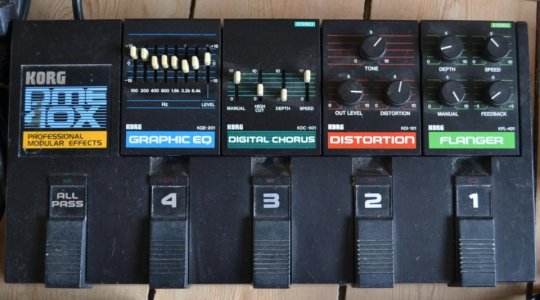Matt_Herman
New member
Re: I wonder why guitar pedals aren't made in a quasi "500 series" configuration.
Re: I wonder why guitar pedals aren't made in a quasi "500 series" configuration.
I was recently at Control in Brooklyn (a specialised modular synth shop) and, from the perspective of a dedicated guitarist, I was enamored with the thoughtfulness and intelligence of the modular system. My $.02.
Just seems like a good idea for the 21st century. Me thinks.
Sent from my iPhone using Tapatalk
Re: I wonder why guitar pedals aren't made in a quasi "500 series" configuration.
I was recently at Control in Brooklyn (a specialised modular synth shop) and, from the perspective of a dedicated guitarist, I was enamored with the thoughtfulness and intelligence of the modular system. My $.02.
Just seems like a good idea for the 21st century. Me thinks.
Sent from my iPhone using Tapatalk

